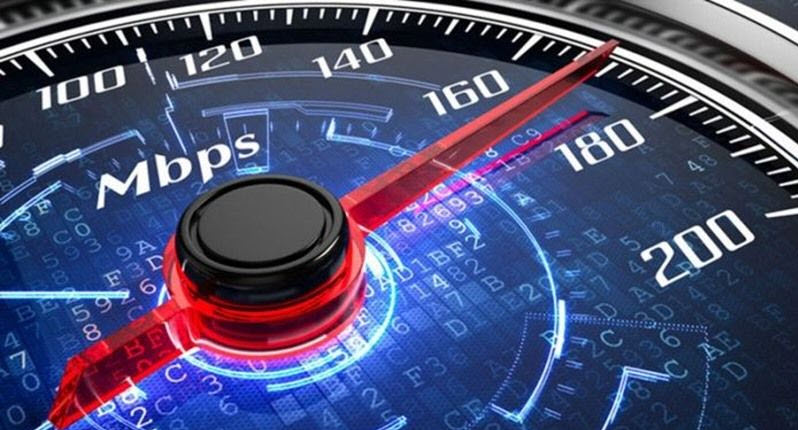Slow WiFi connection for a minute can be frustrating, to put it lightly. It never gets less annoying, and we’ve all been there. You know, when the page just won’t load regardless of how many times you hit the refresh button, and you feel increasingly tempted to fling your laptop out of the window. The spinning ball of death; the egg-timer that revolves stubbornly as if to play a cruel trick on you. You’ll agree, in the digital age, there’s nothing more frustrating than a slow internet connection. Frustrating as it is, there are a few tricks you could use to boost your internet speed.

1. Reset your router
For the record, resetting your router is NOT synonymous with restarting your router. The most common way to reset your router is by long pressing the recessed reset button found, in most cases, on the back of your router. You can reach it using a straightened-out paper clip. Reset your router when you have a slow connection or when you have upgraded your internet speed but don’t seem to enjoy the speed you were billed for. As a matter of fact, resetting your router restores its default password and is the only way you can access its web interface after you’ve forgotten your password. Restart your router when it is overheating and causing a slow connection. You could even set it to perform daily reboots to for a stable connection.
2. Secure your Wi-Fi network
When your wireless network is unsecured, strangers can tap into your broadband connection and access the internet via your network without your knowledge. Obviously, this can slow your internet connection as others will drain your bandwidth. Also, surfing the web or making any transaction when connected to an unsecured network is synonymous with exposing your private information to hackers. To be on the safe side, make it difficult for strangers to access your Wi-Fi network. Set a robust password comprising of numbers, symbols and letters. You could also use your router settings to make the network invisible.
Even better, invest in a good VPN. VPNs protect you by masking your internet protocol (IP) address. That means you can browse the internet without worrying about hackers tracing your digital footprints. Most importantly, VPNs encrypts your connections which improves your online privacy.
3. Close programs that hog your bandwidth
Remember, most of today’s applications use the Internet to some extent. You might experience a significant decrease in your broadband speed if programs are running in the background.
To boost your Internet speed, you should close all programs that are not essential. You can do that via a Task Manager (Windows devices) or an Activity Monitor (macOS devices). Also, you should clear your browser’s history and cache as it might also aid in boosting your connection speed.
4. A VPN might do the trick
This one might sound a bit weird, but a VPN might actually increase a websites loading speed depending on your location. Let’s say you live in Greece and you surf through a lot of websites which are stored on servers that are located in USA. In this case, the time for the website to load could take quite some time.
And here’s where a VPN comes in. You could connect to a VPN server that is located in the exact same country where the website is stored. That would minimize the distance between your computer and the websites server which could result in faster loading speed. It’s important to note that not all VPN services provide the same server load speed so make sure to choose the fastest provider available.
5. Remove malware if any is found
Malicious software could prove to be the primary reason your experience slow internet connectivity. Malware applications come in all shapes and forms. However, most of them use your Internet connection to communicate with its C&C (Command & Control), which is often the reason such devious software affects one’s Internet speed.
Often malicious programs are used to create something known as a botnet – a collection of internet-connected devices that are infected and controlled by a common type of malware. Usually, botnets use the computing power and resource of the inter-connected devices for automated tasks unbeknownst to the user. For instance, your computer could be used in a DDoS attack (distributed denial-of-service attack), which can consume enormous amounts of your bandwidth, leaving you to deal with a slow connection.
6. Use a LAN Cable
Any online gamer will tell you that a one-second delay can make the whole gaming experience frustrating! While WiFi connections come with unmatched convenience, using a LAN cable can reduce the lag associated with WiFi connection big time! The reliability that comes with LAN Cable outstrips the convenience of a WiFi. You see, your router sends a Wi-Fi connection around your home using radio waves, and the efficiency of these waves is dependent on a lot of factors. To limit the chances of experiencing a slow connection use an Ethernet cable as it ensures stable connectivity at all times.
7. Switch broadband providers
If you have tried to make every tweak mentioned above but still finds that your connection is slow, subscribing to another broadband provider could be the best solution. Your internet provider should clearly describe the speeds you should expect before signing you up for their service.
Conclusion
The above mentioned tweaks, when implemented, should make your internet connection more reliable, faster and more secure.

